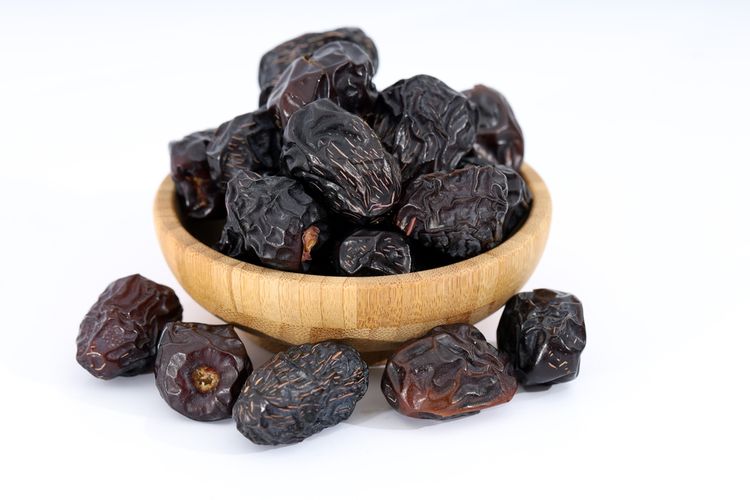
The Malaysian Date Wholesalers: Their Impact on the Agricultural Economy
Dates, a sweet and nutritious fruit, have become increasingly popular in Malaysia in recent years. This rise in demand has fueled the growth of a thriving date wholesale and processing industry, with Pemborong Kurma Malaysia playing a central role. But how do these wholesalers and the dates they distribute impact the overall agricultural economy in Malaysia? This blog post explores this connection, examining the economic contributions of Pemborong Kurma Malaysia and the date industry.
Pemborong Kurma Malaysia: The Date Wholesalers
Pemborong Kurma Malaysia translates to “date wholesalers” in Malay. These companies act as intermediaries between international date growers and exporters, and Malaysian retailers and distributors. They source dates in bulk from major date-producing countries like Saudi Arabia, Egypt, Iran, and Tunisia. By ensuring a steady supply of dates throughout the year, date wholesalers in Malaysia contribute to the Malaysian economy in several ways:
- Job Creation: The date wholesale industry generates employment opportunities in various sectors. This includes jobs in import and export, logistics, storage, sales, and marketing. Date wholesalers employ personnel with expertise in sourcing, quality control, and distribution, contributing to the overall employment landscape.
- Boosting International Trade: The import of dates by dates wholesalers strengthens Malaysia’s international trade relations with date-producing countries. This trade activity contributes to foreign currency inflow and fosters economic partnerships.
- Government Revenue: Taxes levied on imported dates generate revenue for the Malaysian government. This revenue can be used to fund various public services and infrastructure development projects.
Dates and Malaysian Agriculture: Indirect Contributions
While Malaysia isn’t a major producer of dates itself, the presence of Pemborong Kurma Malaysia (date wholesalers) and the growing popularity of dates can have surprising positive impacts on the country’s agricultural sector. Here’s a closer look at these indirect contributions:
1. Knowledge Transfer and Expertise:
The date trade acts as a bridge for the transfer of valuable knowledge and expertise. This exchange can happen in several ways:
- Interaction with Date Producers: dates wholesalers likely have established relationships with date growers and processors in major producing countries. Through these interactions, Malaysian agricultural professionals and researchers can gain insights into date cultivation techniques, water management practices suited for arid climates, and innovative post-harvest handling methods.
- Educational Programs: Collaboration between Malaysian and date-producing countries could lead to educational programs or workshops focusing on date palm cultivation, disease control, and value-added product development. This can equip Malaysian agriculturalists with the knowledge to potentially adapt these practices for other tropical fruits native to the country.
2. Encouraging Innovation:
The surge in demand for dates in Malaysia can spark a spirit of innovation within the agricultural sector. Here’s how:
- Exploring Domestic Date Cultivation: The popularity of dates could incentivize local entrepreneurs and researchers to explore the potential of cultivating date palms in suitable regions within Malaysia. This could involve research into developing date palm varieties better suited to the Malaysian climate or exploring innovative irrigation techniques to meet the water needs of these desert plants.
- Date-Based Product Development: The rise of dates opens doors for the creation and marketing of date-based products made in Malaysia. This could include date jams, chutneys, bakery products incorporating dates, or even exploring date-infused beverages. This product diversification can not only cater to consumer demand but also create new revenue streams for Malaysian farmers and food processing companies.
3. Market Expansion for Date-Based Products:
The popularity of dates can pave the way for the development of a whole new market segment:
- Value-Added Date Products: As mentioned earlier, the growing fondness for dates can encourage the creation of date-infused food and beverage products. This market expansion can benefit Malaysian agricultural producers in two ways. Firstly, it can create a demand for locally grown fruits that can be combined with dates, like mangoes or pineapples. Secondly, it can encourage the development of a date processing industry within Malaysia, creating new job opportunities and adding value to imported dates.
It’s important to remember that these are indirect contributions. While the date trade itself isn’t directly linked to Malaysian agriculture, it can create a domino effect, stimulating innovation, knowledge transfer, and market expansion that ultimately benefit the country’s agricultural sector.
Challenges and Considerations
Despite the positive contributions, there are challenges to consider:
- Dependence on Imports: Malaysia’s reliance on imported dates makes it vulnerable to fluctuations in global prices and supply chain disruptions. Encouraging domestic date cultivation could mitigate this dependence.
- Sustainability Concerns: The transportation of dates over long distances can contribute to carbon emissions. Date wholesalers may explore partnering with date producers who prioritize sustainable practices.
Conclusion
Pemborong Kurma Malaysia play a significant role in making dates accessible to Malaysian consumers. Their activities contribute to the national economy through job creation, international trade, and government revenue generation. While Malaysia is not a major date producer, the date industry can indirectly benefit the country’s agricultural sector through knowledge transfer, innovation, and market expansion for date-based products. Addressing challenges like import dependence and sustainability concerns can ensure the long-term viability of the date trade and its positive impact on the Malaysian economy.
Key Highlights
- Pemborong Kurma Malaysia are date wholesalers who source, import, and distribute dates in Malaysia.
- Their activities contribute to the Malaysian economy through job creation, international trade, and government revenue generation.
- The date industry can indirectly benefit Malaysian agriculture through knowledge transfer, innovation, and market expansion for date-based products.
- Addressing import dependence and sustainability concerns are crucial for the long-term viability of the date trade in Malaysia.